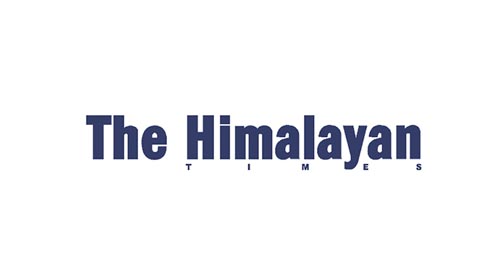EDITORIAL: Fruitful talks
The JCM reviewed the entire gamut of bilateral relations focussing on trade and transit and increasing better connectivity
The fifth Nepal-India Joint Commission Meeting (JCM), co-chaired by the foreign ministers of both the countries, reached an understanding on reviewing the treaties on trade, transit and railway services. They have also agreed to increase connectivity on both the sides through railways, airways and waterways. A statement issued by Nepal’s Ministry of Foreign Affairs at the end of the JCM states that both the countries expressed satisfaction over the progress made on building an electric railway from Raxaul to Kathmandu, extending Indian railways up to five customs points of Nepal and operating medium-sized ships in the Koshi and Narayani rivers from Kolkata port via the Ganga River. Nepal’s Foreign Minister Pradeep Gyawali and his Indian counterpart Subrahmanyam Jaishankar also witnessed the signing of the memorandum of understanding on food safety between the Department of Food Technology and Quality Control of Nepal and Food Safety and Standards Authority of India. With the signing of the MoU, both the countries will give recognition to the quality standard certified by either of the countries. This arrangement will ease trade in foodstuffs between the two sides.
Besides this agreement, the Indian government also handed over cheques amounting to around Rs 3.74 billion for two projects – one for the post-earthquake housing reconstruction in Nuwakot and Gorkha and the other for strengthening road infrastructure in the Tarai region of Nepal. The Indian assistance for post-quake reconstruction has come four years after the natural disaster. The meeting also reviewed the entire gamut of bilateral relations, especially focussing on connectivity and economic partnership; trade and transit; power and water resources, culture and education. The JCM also expressed happiness over the momentum generated by the exchanges of high-level visits in the past two years.
Nepal’s Foreign Ministry said views were exchanged on reviewing the Treaty of Peace and Friendship of 1950 and submission of the report of the Eminent Persons Group (EPG) on Nepal-India relations. Nepal especially drew India’s attention towards the inundation issue. Many Tarai districts get submerged during the rainy season due to inadequate drainage provision that obstruct the natural flow of water across the border areas. On this issue, the JCM agreed to act on the recommendations made by a joint team from both the sides. Indian Foreign Affairs Minister Jaishankar also paid a courtesy call on Prime Minister KP Sharma Oli on Wednesday and President Bidhya Devi Bhandari on Thursday before his departure. PM Oli and Jaishankar initially held a one-on-one meeting for an hour. After the meeting, replying to a query about the EPG report, PM’s Foreign Affairs advisor Rajan Bhattarai said, “The two PMs will receive the report at an appropriate time”. Established in 1987, the last meeting of the Nepal-India Joint Commission was held in 2016, and the sixth one will be held in New Delhi after two years. Although the meeting has been able to resolve most of the bilateral issues, both the sides made no mention in their statements in taking the much-hyped Pancheshwor Project forward.
Next Nijgadh
Now that the detail project report (DPR) of the Kathmandu-Tarai Fast Track has been approved by the Cabinet, Nepal’s first expressway is expected to be complete within two years. The fast track is a national pride project, and delay in approving its DPR has pushed its cost to an estimated Rs 175.19 billion, Rs 63 billion more than the earlier estimate of Rs 112 billion, even though the length of the expressway has got reduced by 3.7 kilometres to 72.5 km. As with all projects undertaken in Nepal, a lot of time is spent debating on the efficacy of a project especially when huge investments are required. The fast track was no exception.
Now that the timely completion of the project, being undertaken by the Nepal Army, is guaranteed, the government would do well to also complete the DPR of the Nijgadh International Airport in the Tarai, which the expressway will link with the capital. While two regional airports – at Bhairahawa and Pokhara – are on their way to being completed in the near future, it is unfortunate that nothing is being done about Nijgadh, which is supposed to take a lot of pressure of both aircraft and passengers off the Tribhuvan International Airport in Kathmandu.






